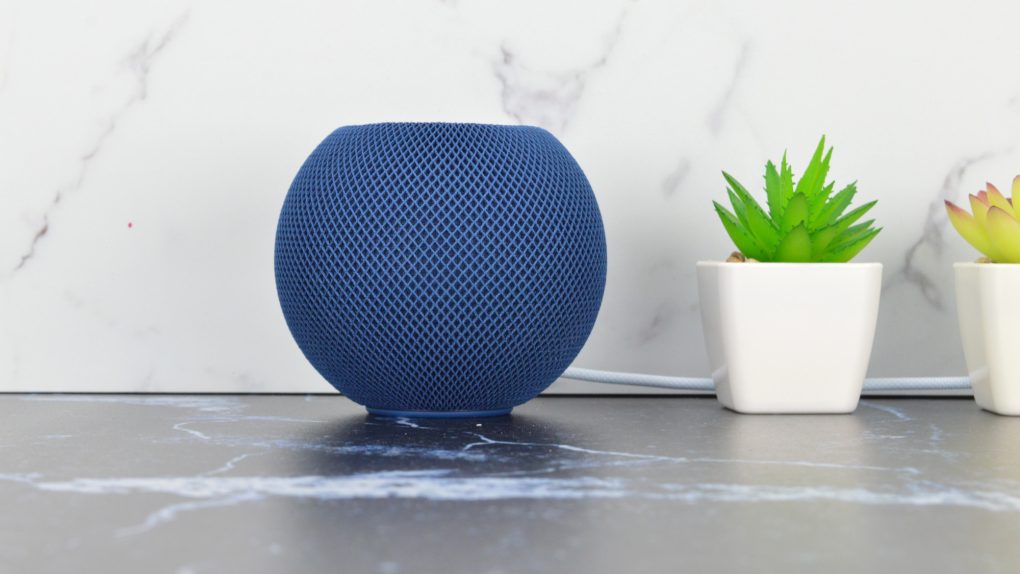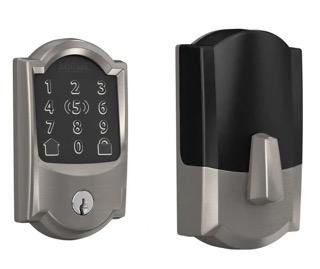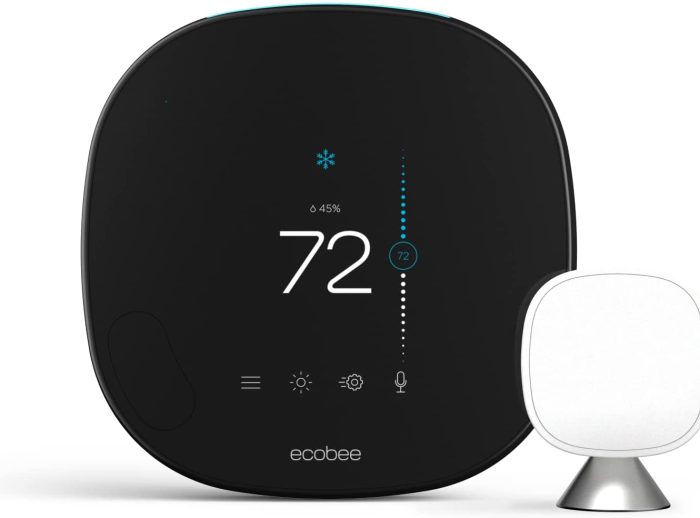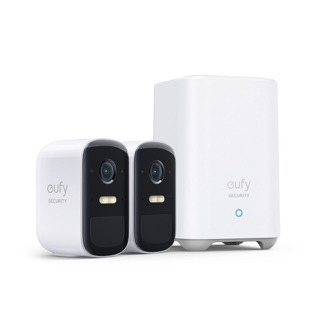Apple’s HomeKit smart home ecosystem makes it easy to set up and control smart home devices on all of your Apple devices, and with Siri. HomeKit isn’t necessarily as full-featured as systems like Samsung SmartThings, for example. But it’s definitely easier to use, and for most, is all the smart home necessary.
There are, however, tons of HomeKit-compatible devices out there, and they’re not all created equal. You can find HomeKit-compatible locks, lightbulbs, speakers, and more. And, finding the right device for your needs can end up having an impact on your home.
There are a few things to consider before you buy a HomeKit device. For starters, you’ll want to double-check that it is indeed HomeKit compatible. Not all smart home devices support HomeKit — some only support Google Assistant, Alexa, or another smart home ecosystem altogether.
It may be worth trying to mainly buy devices that will eventually support the new smart home standard, Matter. Matter is set to roll out later this year (barring any further delays), and will allow smart home devices to be much more interoperable. Now, it’s impossible to know if a device will actually support Matter until it gets the update to Matter. But many companies have said that their devices will support Matter, and it’s probably a good idea to try and stick with buying devices from those companies, in case you want to switch away from HomeKit down the line. Many smart home devices also support Thread, which allows them to create a mesh network in your home, increasing responsiveness.
It’s also important to note that you’ll want a HomeKit hub to get the most out of HomeKit. Without a HomeKit hub, you won’t be able to access or control your HomeKit devices when you’re not at home, and devices may not be quite as responsive. The Apple TV, HomePod Mini, and recent iPad models can all serve as a HomeKit hub. But keep in mind you’ll only want to use an iPad if you don’t take it out of the home.
Without further ado, here are the best HomeKit devices you can currently buy.
Best HomeKit hub: Apple TV 4K
Pros
- Well-designed
- Easy to use
- Works well with HomeKit
Cons
- Expensive
If you need to start with a HomeKit hub, then it’s worth considering the Apple TV 4K. Note, you don’t have to use the Apple TV as your hub if you don’t want to. If you don’t want to change your home theater setup, you can use the HomePod Mini instead.
That said, if you’re open to using the Apple TV 4K, you won’t regret it. The Apple TV 4K is super easy to use thanks to Apple’s tvOS software, which presents apps in a grid. The Apple TV app lets you dive into content from all your streaming services, and, of course, you can use Siri on the device.
When it comes to specifications, the Apple TV 4K supports pretty much everything you would want. It outputs video in 4K, and supports standards like Dolby Vision and HDR 10. Plus it supports audio standards like Dolby Atmos.
The Apple TV 4K may be a little expensive, but it’s a great streaming device for Apple users. And, it serves as a great HomeKit hub.
Best HomeKit lightbulbs: Philips Hue
Pros
- Responsive
- Versatile
- Lots of bulb options
Cons
- Slightly pricey initial investment
If you’re looking to add smarts to your home lighting, then you can’t beat Philips Hue. Hue has long been the standard for smart home lighting, thanks to the fact that Hue products are highly responsive, work with all major smart home ecosystems, and more.
There are all kinds of different Philips Hue smart lights, meaning that you should be able to find great lighting no matter what you’re looking for. The kit above is for the Philips Hue White Starter Kit, which includes the hub that you’ll need to get started, three white bulbs, and a Hue button. You won’t need to buy a Hue hub each time you buy new lights. Hubs can support up to 50 lights and accessories, which should be enough for most homes.
Because you need a hub for Hue, the initial investment for Hue products is a little higher than products from LIFX, for example. But Hue bulbs are also a little more responsive, and individual bulbs are often cheaper. So, over time the cost will even out. Hue is also worth going for given the sheer number of lights that support Hue.
Best HomeKit smart speaker: Apple HomePod Mini
Pros
- Nice design
- Siri built in
- Works as HomeKit hub
- Solid autio quality
Cons
- Still a little pricey
If you’re looking for a smart speaker that you can use to control your HomeKit-compatible devices, then the HomePod Mini is the way to go. Actually, the HomePod Mini is really your only option — but it’s not a bad product by any means.
The HomePod Mini is definitely more expensive than the Google Nest Mini and Amazon Echo Dot, but it also sounds quite a bit better than those speakers. The device has a nice fabric covering around the exterior, with a flat glass top with volume controls. It’s available in a bunch of cool colors too, which is always nice.
The HomePod Mini has Siri built into it, which lets you control your smart home devices, find information from the web, and play music. Siri may not be as smart as, say, Google Assistant. But it has gotten better and can perform most basic functions well.
Best HomeKit smart plug: Belkin Wemo smart plug with Thread
Pros
- Affordable
- Compact
- Thread support
Cons
- A little basic
If you want to turn your older dumb devices into smart ones, then it’s worth considering the Wemo smart plug with Thread. This plug works exclusively with HomeKit, and has super deep integration with HomeKit and Apple’s ecosystem. That means that you can update the plug straight through the Home app, which is super helpful.
The plug is nice and compact, meaning that you could potentially use two next to each other on a two-gang plug. On the side of the plug is a power switch, allowing you to manually turn connected devices on and off.
The plug is pretty high-tech too. It supports HomeKit, but also has Thread connectivity built into it, meaning that it can serve a growing network of Thread-compatible devices in your home. It also supports a quick setup, with an NFC chip built right into it.
The only downside? Well, it really only supports HomeKit, so if you use multiple smart home ecosystems in your home, this isn’t for you. Also, the device is a little basic. That’s to say, you won’t get features like energy monitoring. That makes sense, though, given that’s not a feature that HomeKit supports. But if you want a basic HomeKit plug, this is the way to go.
Best HomeKit smart lock: Schlage Encode Plus
Pros
- Supports Apple Home Key
- Solid design
- Works with Alexa, Google Assistant, and HomeKit
Cons
- A little pricey
If you’re looking for a great lock that works well within Apple’s ecosystem, then the Schlage Encode Plus is the way to go. This lock not only allows you to lock and unlock your door using Apple’s Home app, but it also supports the new Home Key feature, which lets you use the lock using your phone’s NFC chip, like you use it for Apple Pay.
The lock is actually even more versatile than that. That’s because it has a number pad on it, letting you unlock it with a PIN code.
The lock is a little expensive, which is something to keep in mind. But, it also looks great, and works well with HomeKit — as well as Google Assistant and Amazon Alexa. You can also check out the Lever Lock+.
Best HomeKit thermostat: Ecobee SmartThermostat
Pros
- Can have Siri built-in
- Good remote sensors
- Decent design
Cons
- A little big and bulky
- A bit expensive
If you’re looking for a great HomeKit-compatible thermostat, then the Ecobee Smart Thermostat is the way to go. This thermostat not only works within HomeKit, but under the right circumstances, you can have Siri built right into it. To do so, you’ll need to have a HomePod Mini elsewhere in the house. But if you’re super deep in Apple’s ecosystem, then chances are you may already.
If you don’t want Siri in the thermostat, you can use Alexa with it too. You don’t need any other devices to make that work.
The Smart Thermostat offers other advantages too. Notably, it’s pretty smart, and it supports great external sensors for gauging the temperature in your whole home. And, it’s very easy to control, whether that be through your phone, or through the actual device.
The thermostat isn’t perfect though. It is a little pricey, though not over the top, and while it doesn’t look bad, it’s a bit bulky. But if you can look past those issues, you’ll absolutely love its support for Apple’s ecosystem.
Best HomeKit security camera: EufyCam 2C Pro
Pros
- Well-designed
- Supports HomeKit Secure Video
- No subscription required
Cons
- Expensive
If you want to increase the security in or around your home with a security camera or two, then the EufyCam 2C Pro is the security camera for you. It’s expensive, and requires the use of an external hub, but there are a ton of advantages to that.
The EufyCam 2C Pro works with HomeKit, and it supports Apple’s HomeKit Secure Video, meaning that you can store your footage in iCloud and access it anywhere. Not only that, but the camera stores footage locally, which means you don’t have to pay for a monthly subscription. In the long run, you could save money buying this over a different, cheaper camera.
The EufyCam 2C Pro also works with Google Assistant and Amazon’s Alexa. So, you don’t have to use it with HomeKit if you don’t want to. And, the actual video quality is pretty good — which always helps.
Is Ring HomeKit compatible?
In short, no. Ring is owned by Amazon, and as such it works best within Amazon’s ecosystem of smart home devices. There are workarounds though. You can use HomeBridge to add Ring devices to HomeKit, but doing so will require some technical knowledge. And, without official support, expect bugs and other issues.
Is Google Nest compatible with Apple HomeKit?
Google Nest devices are not compatible with HomeKit at this time. Nest is owned by Google, and as such Nest devices work best with Google Home. That said, with coming support for Matter, you may be able to add some Nest devices to HomeKit in the future. But you can’t yet, and you probably shouldn’t buy a device with future features in mind.
What about Matter?
Matter is an upcoming smart home standard that is being worked on by many of the largest tech companies — including Apple, Google, and Amazon. The goal with Matter is to make smart home devices more interoperable. That means that devices that support Matter will work with HomeKit, Google Assistant, and Amazon Alexa. And, it means that smart home devices only have to build to support one standard — Matter.
What can I do with HomeKit?
HomeKit allows you to use your phone and voice to control your smart home. This means that you can control your devices remotely (if you have a HomeKit hub) or from the couch. It also lets you set up automations. Smart home automation basically allow devices to work automatically based on another event. For example, you could set your living room lights to turn on when you get home.
Does Apple TV need to be on for HomeKit?
No. HomeKit works on an Apple TV without the device needing to be on. It does, however, need to be plugged in. Then, it will work in a low power state to manage your smart home devices, even when it’s not displaying something on the actual TV.















